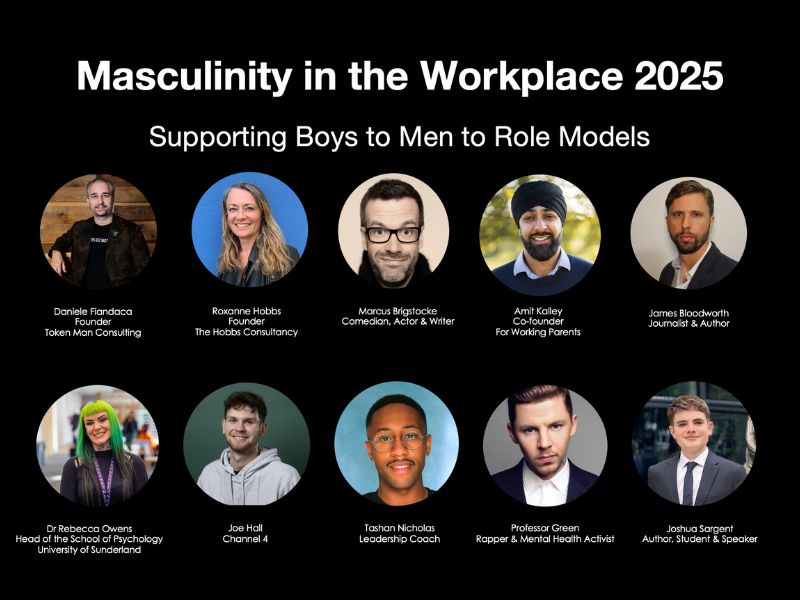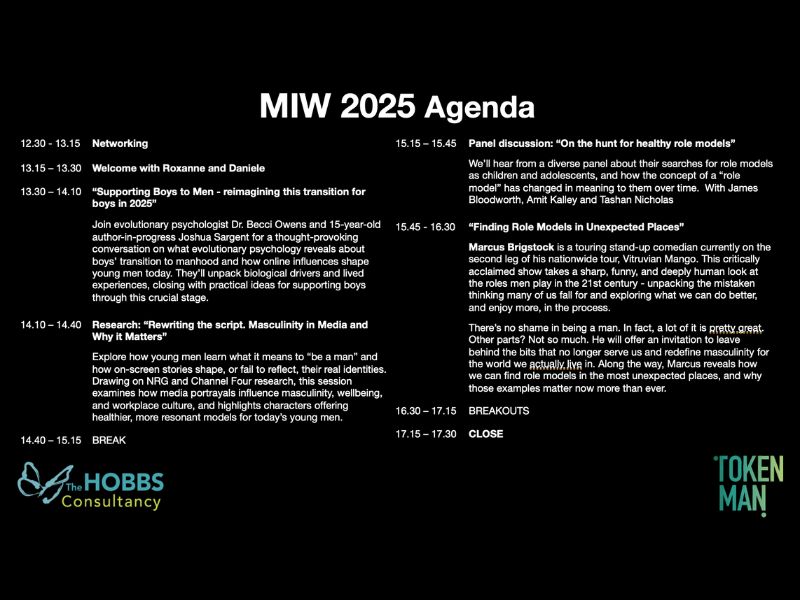
By Chris Rabbitt, Co-Founder of Meeow Online Networking
In fact, a 2021 policy brief by the International Labour Organisation (ILO), found that the imbalance of job and income losses suffered by women through the COVID-19 pandemic will have longer lasting effects. One of the first indictors is that in 2021 there were 13m fewer women in employment globally than in 2019, a depreciation rate which is not echoed by men.
Although this drop in employed women was predominately caused by their level of involvement in the industries hardest hit by the pandemic, there are other, less obvious reasons at play.
Working from home sounds like a flexible dream for many. However, once it became a legal obligation in March 2020, coupled with school closures, it became a nightmare for many. The majority share of childcare and home-school duties fell to many working mothers, leading to higher rates of burnout and a poor work/life balance, especially with many feeling that they had to work later hours to account for “lost time” spent with children.
And what impact did this ‘motherhood penalty’ have on these women? In some cases, it caused a disengagement and a lack of motivation toward the work they were doing. In fact, the added burdens of dealing with a new home-working experience and greater home pressures have pushed roughly 33 percent of working mothers to consider downshifting their careers or leaving their jobs altogether.
As we continue to deal with ongoing impact of the Covid pandemic, employers need to take a serious look at how we can start re-engaging women back into the world of business, the world from which they were shunned so quickly.
If truth be told, empty messages of empowerment aren’t going to cut it.
Gender inequality in the workplace is not a new phenomenon of the pandemic. However, this new way of working means there’s never been a greater need to start making real changes.
What’s really important is that we recognise that this isn’t a case of preaching the ‘#girlboss’ mentality. Using slogans can be viewed as being patronising to strong women in positions of power, however inspiring they may be to others. Empty messages of empowerment, wrapped in feminist ideology, are not going to be a catalyst for change. Words cannot be mistaken as action.
Society need progress, and for that to happen there must be an appreciation and understanding of feminism in businesses, government policies and behaviours in order to create a good and equitable working environment.
This effort must be real – there is no place for tokenism. As with all inequalities in the workplace, actions taken for the sake of appearances will do more harm than good. And employers must do all they can to avoid further damaging the reengagement of women, rather than once again making them feel undervalued and misrepresented.
It is certainly not a case of hiring one woman to a leadership role ‘to fill a quota’ or use her to demonstrate how the company is a shining light of female empowerment and progression. Women have become hardened to this transparent attempt at looking good without putting in any of the foundations in place.
Instead of the tokenistic approach, we need businesses to start providing the right infrastructure and levels of support to accommodate, educate and aid the development of an inclusive work culture. Both men and women need to be comfortable with the idea of feminism, to understand that it’s not about taking down men to raise up women. It’s about creating a culture where both women and men have their opinion valued and are given the same opportunities, regardless of their outside commitments or gender.
Will it work? Can we reengage women in the workplace after they were treated so wrongly? Where do we even start?
Hybrid working is set to be the new normal for many. However, research shows that while 79% of women are choosing to work from home, only 64% of men are doing the same. With such a gender disparity occurring in the office, inequalities are inevitable. It is down to management to ensure that being physically present, or presenteeism, isn’t being rewarded.
The right culture and structure need to be in place so that those choosing to work from home are not seen as less committed, or work shy, which could result in fewer opportunities of promotions or informal career advancing networking than their office-bound peers.
There must be an understanding that those who choose to work from home are not doing so to have an easy life. For many, both male and female, the removal of a daily commute saves money, allows them more time with their family or to spend on hobbies, or enables them to work around their children. With the often-astronomical cost of childcare, decreasing this outgoing through more time at home will actually encourage more women into the workforce. Ultimately, women are choosing to be at home for reasons other than to be a stay-at-home mum or a housewife. This makes them no less committed to their jobs.
If there is a bias toward those employees who are present in the office, it can be perceived as a gendered one, as women are more likely to choose work from home. It is one which makes them choose between their preferred working environment or career progression, which in turn leads to disengagement.
Employers need to be committed to rewarding based on merit not presence and establish inclusivity no matter what environment employees choose to work within.
There aren’t many situations where one size fits all, so why should it be the case in business? How can anyone possibly benchmark a person’s success against another if they both working from different locations in different environments? The problem is many do.
So, how do we customise the work experience, without crippling productivity? A good example sits within the manager-team relationship. One-to-ones should be tailored to each employee so that goals are specific and achievable, and rewards can be given to fit. Perhaps attending more virtual networking events for the remote business manager could be a suitable goal, compared to physical event attendance for the office-based manager.
Pre-Covid, women faced bias and challenges on multiple levels in business. Networking is just one example of a growth opportunity that proved particularly difficult for many.
Why? Women felt like their presence wasn’t validated. Networking events tended to highlight the stereotypical ‘man’s world’ of business. Research has shown that these subtler types of exclusion lead to women not being able to make as strong a network as their male counterparts. This wasn’t helped by men naturally preferring to communicate with other men either. Women therefore generally attended fewer face-to-face events and those that did, felt excluded.
The good news is, online networking really came into its own in the pandemic and continues to thrive, particularly in the last year with face-to-face events being cancelled.
The major advantage to online networking is that some events are held with a smaller number of people, normally only 4-5, which gives everyone equal time to talk, and creates less of an opportunity for selective conversations – or for people to interrupt or talk over another attendee.
Allowing fluid and clear communication between all parties will not only create opportunities for each participant but also will give the unengaged woman her voice back. And hopefully her passion for her role and employer.
Online networking has the potential to reinstall a sense of confidence in women. Networking no longer needs to be a stuffy room filled with suits. It can be done in the space you work best in, what’s more empowering than that?
November
06nov10:0015:00CPD Accredited Menopause Champion Course
06/11/2025 10:00 - 15:00(GMT+00:00)
Join us on our CPD Accredited Menopause Champion Course Our course includes practical tools, DEI considerations and step-by-step guidance to help Champions feel confident and equipped to offer real support — not just awareness. Here’s what’s included: Understanding Menopause
Our course includes practical tools, DEI considerations and step-by-step guidance to help Champions feel confident and equipped to offer real support — not just awareness.
Here’s what’s included:
Understanding Menopause
– Key stages and common symptoms
– How menopause impacts work and wellbeing
Diversity in Menopause
– Different experiences across cultures, health, age, and gender identity
Managing Menopause
– Overview of HRT, natural options, and practical strategies
Navigating GP Appointments
– How to self-advocate, track symptoms, and prepare for appointments
Supporting Colleagues
– Fostering openness, having sensitive conversations, and making adjustments
Creating Menopause Action Plans
– Step-by-step template to ensure support and inclusion
Championing Inclusion
– Guidance for supporting neurodivergent, disabled, diverse, LGBTQ+, and frontline staff
Your Role as a Champion
– Responsibilities, boundaries, signposting, and building trust
The course also includes:
✅ A Menopause Action Plan template
✅ Navigating GP Appointments document
Plus loads more free resources!
DATE: Thursday 6th November
DATE: Wednesday 17th December
Place: Zoom
Time: 10.0am – 3.00pm
Cost: £395 (including certificate)
19nov10:0013:00MenoMinds – Free Training for Women in Business | Menospace & Minds That Work
19/11/2025 10:00 - 13:00(GMT+00:00)
Introducing MenoMinds – Free Training for Women in Business We’re excited to share MenoMinds, a fully funded programme created by Menospace and
We’re excited to share MenoMinds, a fully funded programme created by Menospace and Minds That Work, supporting women in business, freelancing, or entrepreneurship through the emotional and mental challenges of menopause.
Wednesday 19th November | 10:00am – 1:00pm (UK)
Live on Zoom | 💷 Free (funded by NEBOSH’s Social Purpose Programme)
Menopause can affect confidence, focus and wellbeing — MenoMinds helps you take back control with practical tools and a supportive community.
You’ll explore the CARE Framework:
Includes a digital workbook and invitation to monthly community groups on sleep, nutrition and stress management.
Freelancers, entrepreneurs, and women in small or micro-businesses (under 50 employees).
Facilitators: Haley White (Menospace) and Victoria Brookbank (Minds That Work)
19nov12:3018:00Masculinity in the Workplace - 2025 (In-person)
19/11/2025 12:30 - 18:00(GMT+00:00)
Conway Hall
25 Red Lion Square, London, WC1R 4RL
Brought to you by Token Man and The Hobbs Consultancy. Welcome to Masculinity in the Workplace, designed specifically to

Welcome to Masculinity in the Workplace, designed specifically to engage men with creating inclusive cultures. Marking International Men’s Day, the objective of our event is to give men both the reason and the skills to lean into the conversation, while also providing women and non-binary people with the confidence to engage more men in culture change. Because ultimately we can only make real change by working together.
Date: Weds Nov 19 2025
Time: 12.30pm to 6pm
Location: Conway Hall, 25 Red Lion Square, London, WC1R 4RL
Our speakers will share their insights and experiences, shedding light on the evolving dynamics of masculinity, leadership and culturein diverse work environments. You’ll have the chance to ask questions, participate in interactive sessions, and network with like-minded professionals.
The theme for this year is ‘Supporting Boys to Men to Role Models’. This year’s event will seek to understand the concerns and barriers that are in the way for boys and men, particularly looking at key inflection points in their lives. It will equip parents, leaders, friends and persons of significance in the lives of young men with the tools for self-reflection, effective role modelling and courageous conversations..
It will suggest that status-seeking and risk-taking behaviours are innate as boys become men, look at how this shows up for boys in 2025 and question what support could help these boys have a more positive initiation in to adulthood so that they are ready for the workplace. We know that there is a reverse gender pay gap and that schools aren’t preparing students in the same way to enter the professional workplace – what needs to be done?
We will look at the behaviours that are role modelled by men once they are in the workplace. Is it healthy for us to look for male role models, or is a search for positive behaviours more effective? What can we learn from how men are represented on screen and in the media? And what can we do to support our men once they are in the workplace?
This site is for the in-person experience. Otherwise you can register for the online version here.
FYI – lunch will not be provided

This event is for anyone passionate about creating more inclusive, equitable, diverse and human workplaces, and we welcome attendees of all identities and expressions.
Historically, our audience has included around 60% men and 40% women or non-binary people, with a wide range of roles and lived experiences.
This year, we’re especially keen to welcome CEOs, HRDs, CMOs, Inclusion & Diversity leaders, People & Culture teams, and anyone working to engage men more effectively in their organisations. Whether you’re a parent, people manager, or someone invested in systemic culture change, this event is for you.
By attending, you’ll be joining a growing community of people committed to reshaping masculinity, unlocking allyship, and building workplace cultures where everyone can thrive – from boys and young men to senior leaders and everyone in between.
20novAll DayDigital Transformation Conference
20/11/2025 All Day(GMT+00:00)
Mercure London Earls Court
London
Ready to transform your business in the digital age? The upcoming Digital Transformation Conference UK promises an exceptional opportunity for leaders who want to accelerate change, embrace innovation and shape
Explore how industry leaders are redefining digital and business transformation. Learn proven strategies, gain fresh perspectives, and connect with peers shaping the future of technology and enterprise. Tactical & practical content to drive your transformation efforts.
Throughout the day, delegates can look forward to a diverse programme of content exploring every aspect of digital transformation, business change, and innovation. Hear best practices, lessons learned, and insights into real-world challenges from leaders driving progress across digital, technology and IT.
If you’re a C-suite leader, head of innovation, transformation or IT, this is the place to be. Whether you’re just starting your journey or looking to scale up, you’ll leave with fresh ideas, new contacts and a renewed sense of direction.
